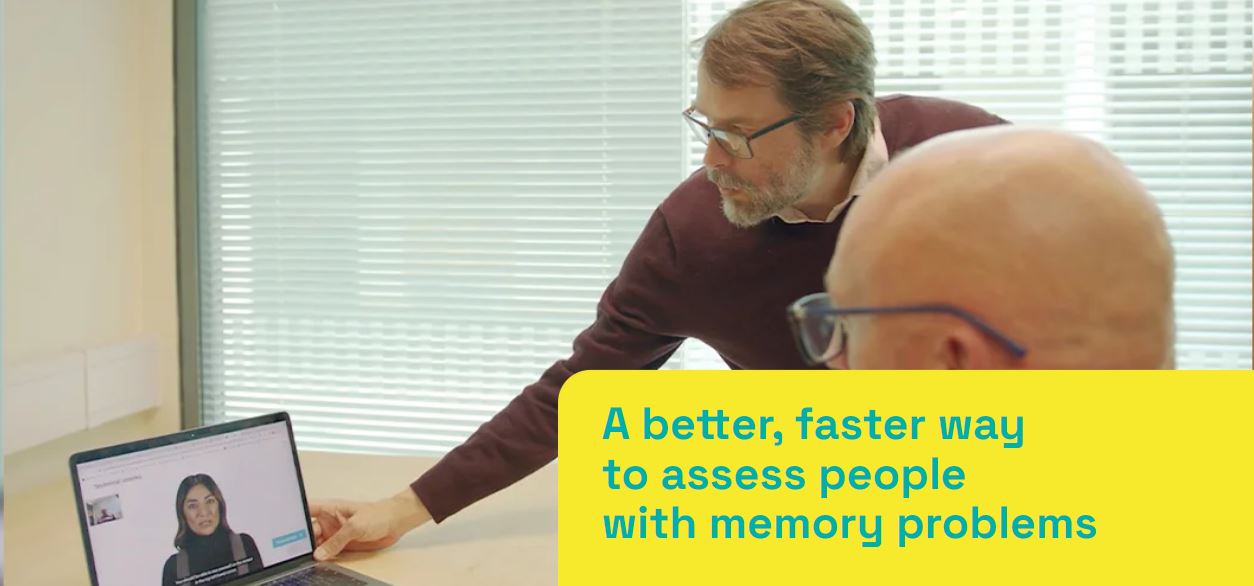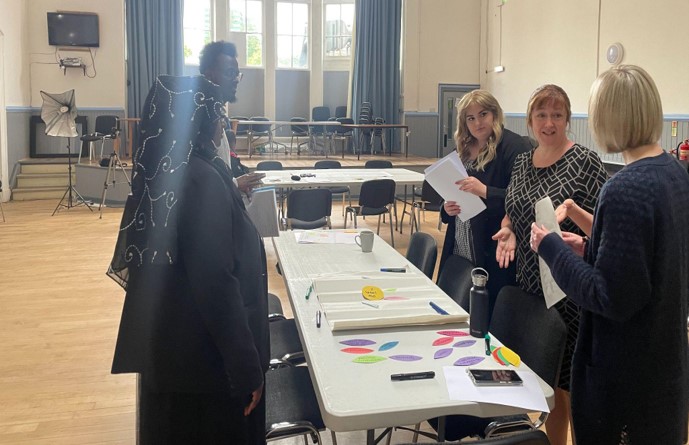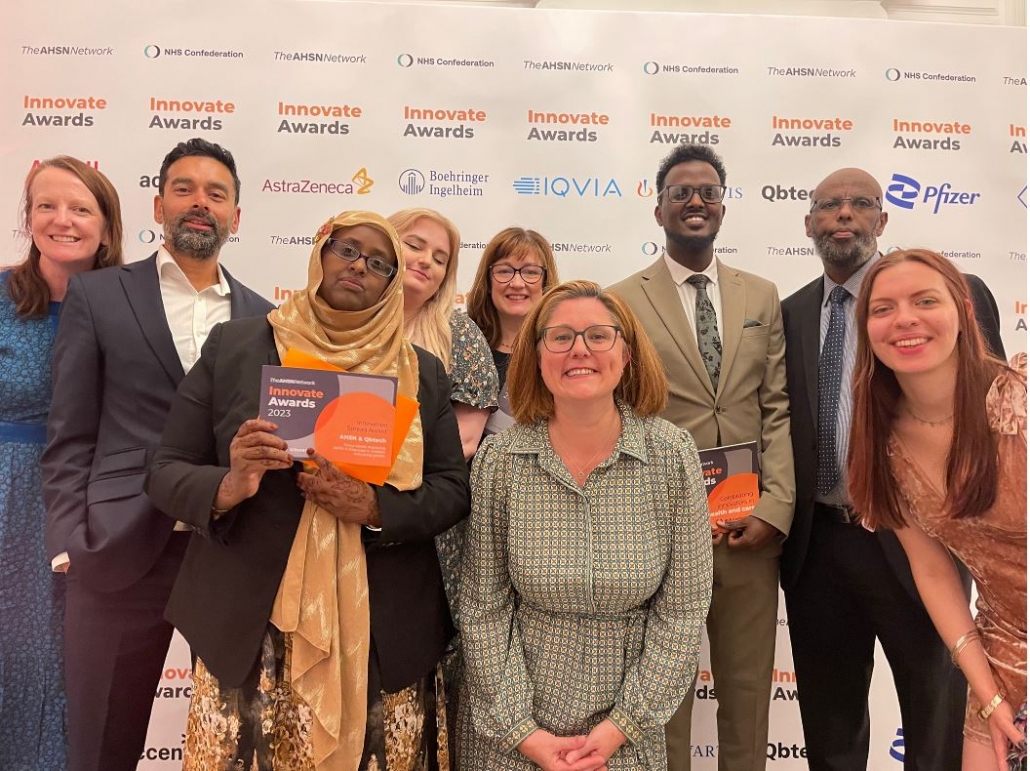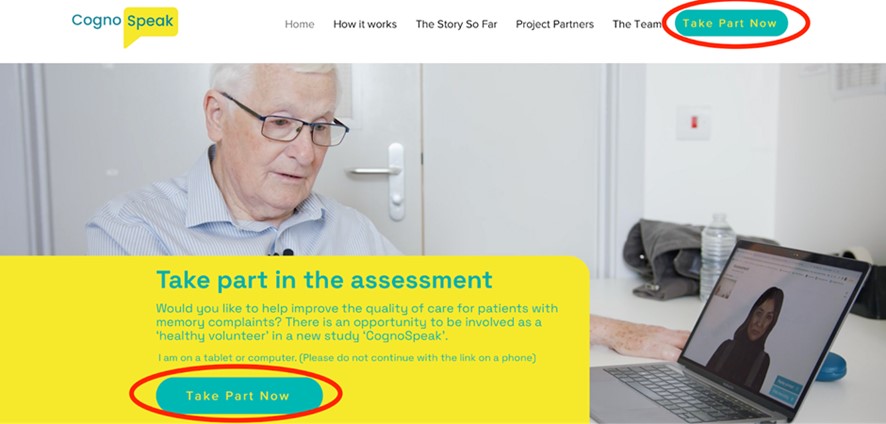CognoSpeakTM – Using AI to Detect Early Signs of Dementia
CognoSpeakTM is a research project hosted by the University of Sheffield, supported via the NIHR Invention for Innovation (i4i) grant, aiming to develop a memory problem screening tool hoping to change the future of dementia diagnosis.
CognoSpeakTM is a digital assessment tool, developed by a team led by Dr. Dan Blackburn and Professor Heidi Christensen (Department of Computer Science), which utilises speech technology and machine learning to identify distinct patterns of speech that help to differentiate between healthy volunteers, neurodegenerative memory problems and functional memory problems. CognoSpeakTM asks participants memory-probing questions and conducts cognitive tests, such as verbal fluency tests or picture descriptions, in a conversational format, representing those used at outpatient consultations.
Early detection of memory problems has many benefits regarding patient care and wellbeing. However, due to memory clinics currently being heavily oversubscribed, quick diagnoses are very hard to achieve. Patients often wait months solely for the initial appointment, which increases patient stress and the possibility of irreversible memory problems. This screening tool has great potential to reduce delays for patients who need urgent attention, whilst also reassuring patients quickly who are not suffering from diseases such as Alzheimer’s, therefore increasing clinical effectiveness and decreasing healthcare costs.Early trials of CognoSpeakTM have shown that it is as accurate in identifying dementia as traditional screening tests used by GPs at.
An article, co-authored by our Long-Term Neurological Conditions Theme Co-Lead Dr. Dan Blackburn, highlights how CognoSpeakTM works with four different groups: Alzheimer’s disease (AD), mild cognitive impairment (MCI), functional cognitive disorder (FCD) and healthy control participants: Fully automated cognitive screening tool based on assessment of speech and language – PubMed (nih.gov).
Devices for Dignity (D4D) are co-investigators on this project and leading the stakeholder engagement element of the project, working to ensure that the system is as acceptable, usable and equally accurate for people who speak English as an additional language, since it has already been proved for native English speakers. The system is being developed further, based on usability feedback from a number of groups and also the Artificial Intelligence (AI) is being trained on a much wider group of participants (50 people from GP referrals awaiting assessment, 50 people from local ethnic minority groups, 120 people with memory problems and 120 healthy controls.)
We have been collaborating closely with the Israac Somali Community Association in Sheffield, where we have made extremely strong connections and learned valuable lessons about involving regularly marginalised groups in clinical research. D4D were keen to work in partnership with ethnic communities and value the impact achievable by working with people from the community, as they have established trust and support within their networks. The project therefore funds time from Ismail Yussuf, Finance and Operations Manager at Israac and also one day per week for two Community Research Associates, Muse Jama and Sahra Abdi who have become fully trained community researchers. They have gained their Good Clinical Practice certificate and have been supported to successfully administer cognitive screening tests to those recruited from the community. They also aid in organising, and interpreting workshops and events to explore lived experience of dementia and healthcare in this community and to spread awareness about health research and opportunities to become involved in this. Once the target of 50 recruits from the Somali population have completed their participation, the team will undertake a similar approach with South Asian Groups in the city.
Another element of the Stakeholder Engagement is consultation with health professionals in areas across the UK in order to explore the tools and processes they use currently in GP practices and in Memory Assessment pathways, this information will be used in order to develop CognoSpeakTM in a format which will best support usability by clinicians and thereby uptake across the UK. We also have commercial partner Therapy Box as Co-Investigators on the grant who are currently supporting the project in multiple ways such as iterative development of the software and helping gain regulatory approvals. They will also be vital towards the end of the project as we look at how to shape commercial development of the product and refine our plans to go to market and reach out to users.
This extremely exciting project and the work we are carrying out has received attention from national newspapers (Researchers developing AI tool that could speed up dementia diagnosis | The Independent) and gained national recognition in the MedTech landscape. We were also shortlisted for the Innovate Awards 2023 for ‘Excellence in Patient and Public Involvement in Transformation and Innovation Award’, more information can be found here: Finalists 2023 (innovatehealthcareawards.co.uk). CognoSpeakTM has also recently been featured on The BBC’s ‘The One Show‘, where the benefits of the device are explained. The episode can be found here, with relevant information between 01:21-06:08.
If you are interested in the progress of the study or if you wish to take part there are plenty of resources available. On CognoSpeak.com, healthy volunteers are able to participate remotely by clicking the ‘Take Part Now ‘button on the top right of the screen (picture below) and completing the assessment. Individuals with memory problems are able to register too by emailing the study team at sth.cognospeaksth20818@nhs.net with the title ‘CognoSpeak Memory Problems Enquiry’. You can also keep up to date with the work that is going on via the website, which includes frequent blog posts or on twitter (@CognoSpeak). We are also releasing a podcast, CognoSPEAK which is available to listen to here: E3 Sound Science: How Computers Help in Diagnosing Alzheimer’s Disease? Ft. CognoSpeak.







